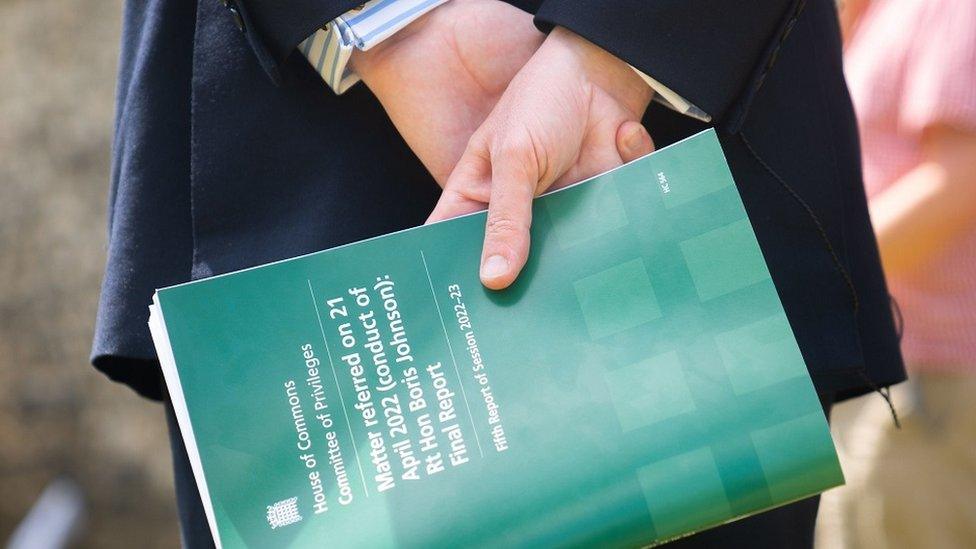Boris Johnson allies to be criticised over Partygate probe
- Published
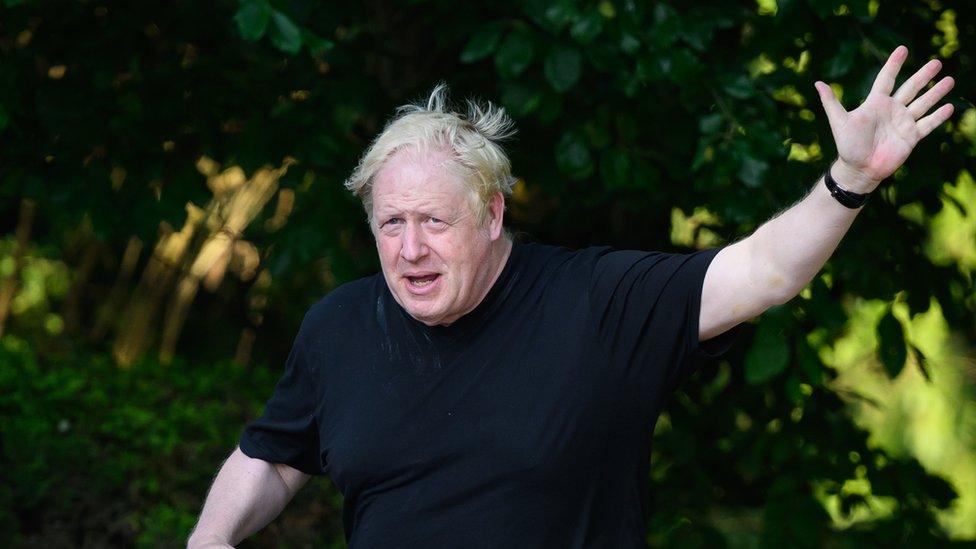
A Commons committee that investigated Boris Johnson over Partygate is expected to criticise his supporters on Thursday.
The former prime minister quit as an MP after the Privileges Committee found he had misled Parliament over Covid breaches in No 10.
Some of his allies, including Nadine Dorries, criticised its inquiry.
It has claimed there was a "sustained attempt" to "undermine" its credibility.
In their report into Mr Johnson, they said the criticism of their work could make it "impossible" for similarly sensitive inquiries to be held in future.
The cross-party committee has seven members, of which four are Tory MPs, two Labour and one from the Scottish National Party.
Its investigation, launched last April, found Mr Johnson had deliberately misled Parliament over lockdown parties in government and that he should have been suspended for 90 days had he remained an MP.
Mr Johnson announced his decision to stand down before its final report was published, branding the committee a "kangaroo court" in a blistering resignation statement.
In the final report, the committee said he had undermined Parliament by "impugning" them - for which they had lengthened their proposed sanction.
Several allies also criticised the committee, including backbench MP Brendan Clarke-Smith, who called its conclusions "spiteful, vindictive and overreaching".
Sir Jacob Rees-Mogg, who was also a cabinet minister under Mr Johnson, described the proposed 90-day sanction as "vindictive", while Nadine Dorries described the committee's inquiry as a "witch-hunt".
At a debate on the committee's report after it was published, Sir Jacob said it was "perfectly reasonable" for MPs to challenge the findings of committees.
"For some reason, the Privileges Committee thinks it is in communist China and that we must kowtow," he added.
The BBC understands that the special report due to be released on Thursday morning by the Privileges Committee will name some MPs and peers.
The report will criticise those MPs and will say there was an element of co-ordination in their response to the work of the committee, which they believe was designed to undermine their work.
Privately, some MPs regard it as ridiculous that MPs should be limited in some way about what they can say publicly about a committee of their peers investigating a colleague.
"It is ludicrous that this committee is behaving like it is a court of law, when it clearly is not," one told the BBC.
Any conclusions or recommendations from the Privileges Committee would have to be endorsed by Parliament in order for the rules surrounding its inquiries to change.
- Published20 June 2023
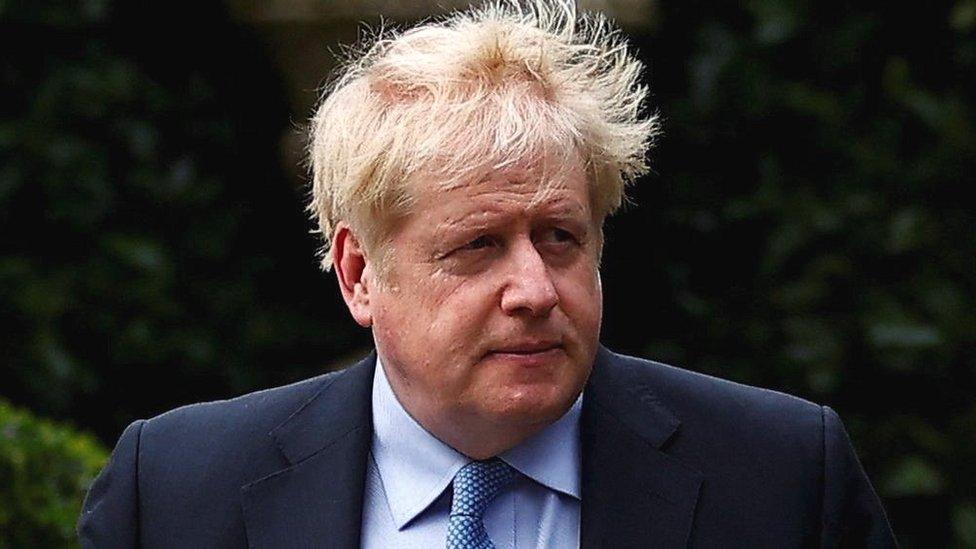
- Published15 June 2023
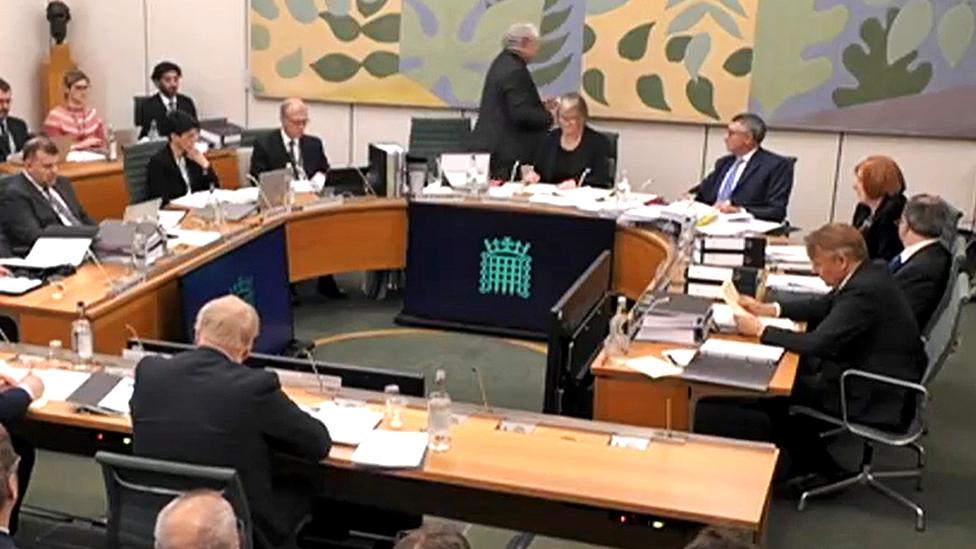
- Published11 August 2022
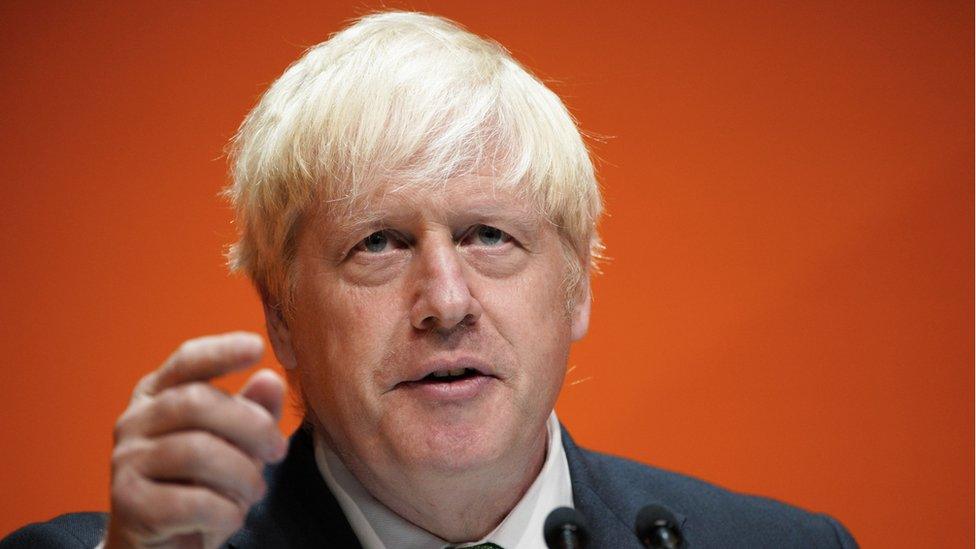
- Published15 June 2023
